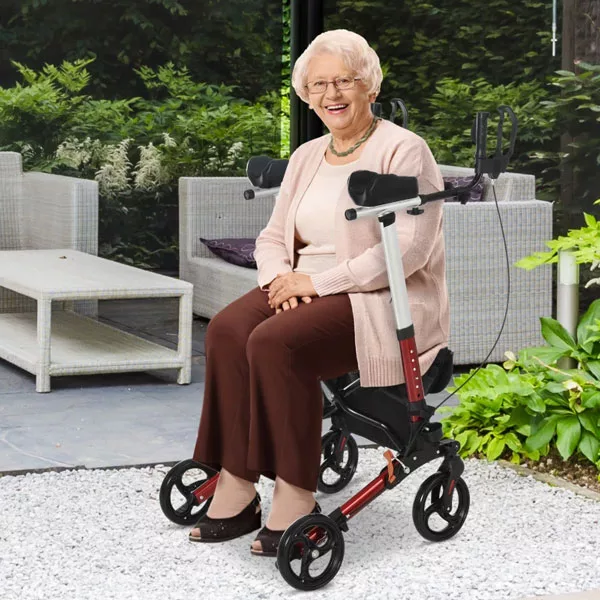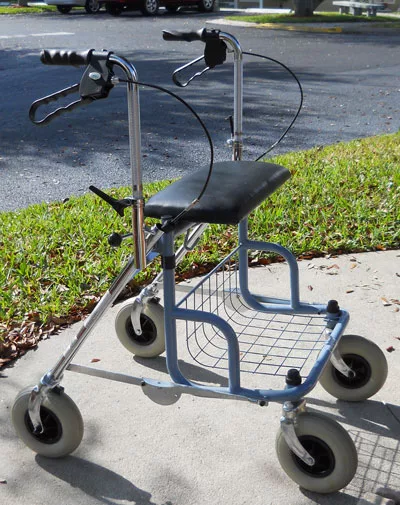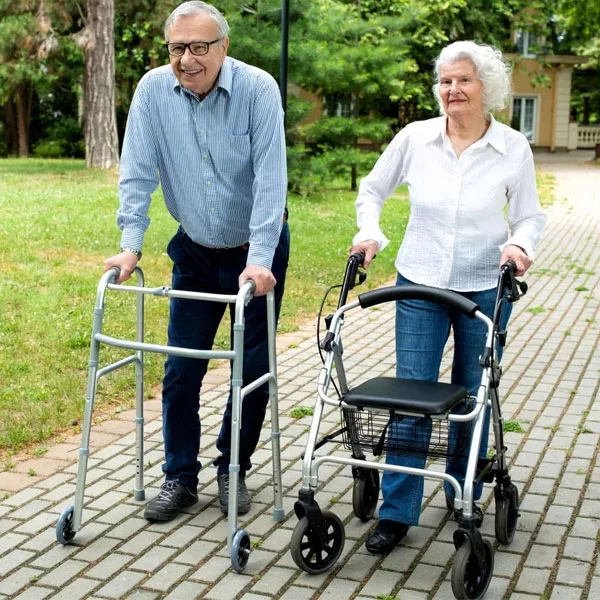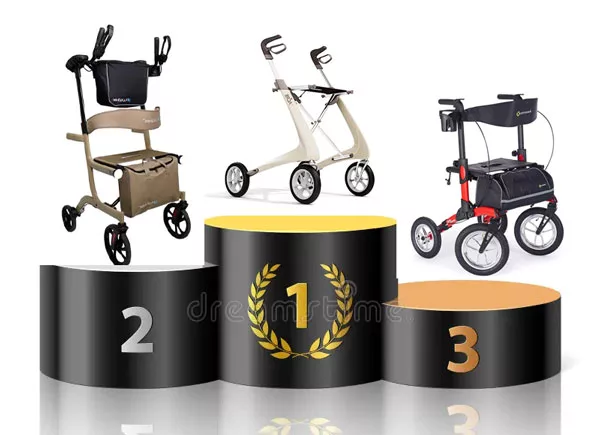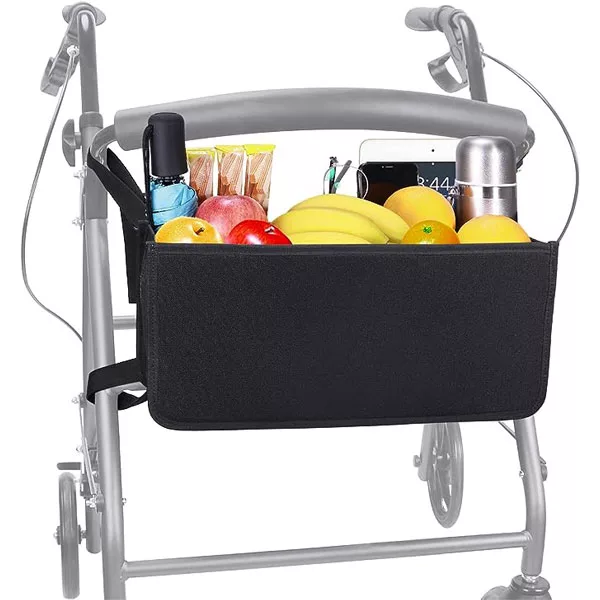Frequently Asked Questions About Walkers for Seniors
General Questions
- What are the different types of walkers available?
- Answer: There are various types of walkers including standard walkers, two-wheel walkers, three-wheel walkers, and rollators. Each serves a unique purpose and is suited for different mobility needs.
- How do I choose the right type of walker?
- Answer: The choice depends on your mobility requirements, lifestyle, and the terrain you’ll be navigating. Consulting a healthcare provider for a personalized recommendation is often the best approach.
- What is the average cost of a walker?
- Answer: Prices can vary widely depending on the type and features, ranging from $50 for basic models to $200 or more for advanced rollators.
- Is a prescription needed to get a walker?
- Answer: While not always necessary, a prescription can help you get insurance coverage for your walker.
- Can I rent a walker?
- Answer: Yes, many medical supply stores offer rental options for various types of walkers.
- How durable are walkers?
- Answer: Most walkers are built to last and can serve you well for several years if maintained properly.
- Do walkers come with warranties?
- Answer: Many reputable brands offer warranties, but it’s always good to check and understand the terms before making a purchase.
- Can I use a walker after surgery?
- Answer: Walkers are often recommended for post-surgery mobility, but always consult your healthcare provider for personalized advice.
Technical Questions
- How do I adjust the height of my walker?
- Answer: Most walkers come with height-adjustable handles. You can usually find a knob or button on the side of the handle that allows for easy adjustment.
- What are walker accessories and do I need them?
- Answer: Walker accessories can include items like baskets, trays, and cup holders. They can add functionality to your walker but are generally optional.
- How do I clean and maintain my walker?
- Answer: Regular cleaning with mild soap and water, along with periodic checks for wear and tear, will keep your walker in good condition.
- Is assembly required for walkers?
- Answer: Some walkers require minimal assembly, while others come fully assembled. Always check the manufacturer’s guidelines.
- What is the weight capacity for walkers?
- Answer: Weight capacities vary by model, so it’s crucial to check this before purchasing.
- How do I fold my walker for storage or travel?
- Answer: Most walkers are foldable, but the mechanism can differ. Consult your user manual for specific instructions.
- Can I add wheels to a standard walker?
- Answer: Some standard walkers allow for the addition of wheels, but it’s best to check with the manufacturer for compatibility.
- What materials are walkers made from?
- Answer: Walkers are commonly made from aluminum, steel, or a combination of both, offering a balance of strength and lightweight design.
Safety Questions
- What are some safety tips for using a walker?
- Answer: Always lock the brakes before sitting, keep your back straight while walking, and ensure the walker’s feet are fully on the ground before taking a step.
- Can I use a walker on all types of terrain?
- Answer: Some walkers are better suited for indoor use, while others, like rollators, are more versatile and can be used outdoors. Always check the manufacturer’s guidelines.
- Is it safe to use a walker on stairs?
- Answer: Using a walker on stairs is generally not recommended unless it’s specifically designed for that purpose.
- How do I safely navigate curbs with a walker?
- Answer: Always approach curbs straight on, and use the handles for support as you step up or down.
- What should I do if my walker tips over?
- Answer: If your walker tips over, remain calm and seek assistance to right it and ensure it’s secure before continuing use.
- Are there any age restrictions for using a walker?
- Answer: Walkers are generally designed for adults and seniors, but there are no specific age restrictions.
- How do I safely transition from sitting to standing with a walker?
- Answer: Use the walker for support, keep your back straight, and push up from the arms of the chair or bed.
- Can I use a walker if I have balance issues?
- Answer: Walkers are designed to aid with balance, but consult your healthcare provider
Lifestyle Questions
- Can I travel with my walker?
- Answer: Absolutely! Many walkers are foldable and lightweight, making them easy to transport. Just make sure to check the dimensions if you’re flying.
- Is it socially acceptable to use a walker?
- Answer: Of course! Mobility aids like walkers are widely accepted and can greatly improve your quality of life.
- Can I exercise with a walker?
- Answer: Yes, many people use their walkers to aid in light exercise routines. Always consult your healthcare provider for personalized advice.
- How do walkers impact daily life?
- Answer: Walkers can significantly improve daily life by providing the support needed to perform everyday activities safely.
- Can I go shopping with my walker?
- Answer: Absolutely, many walkers come with baskets or can be fitted with one. Just be mindful of the weight you’re adding.
- Is a walker or a rollator better for social events?
- Answer: Rollators often have seats and are generally more versatile, making them a popular choice for social events.
- Can I use a walker at home and another for outings?
- Answer: Many people do use different types of walkers for different situations. It’s all about what makes you most comfortable.
- How do I store my walker when not in use?
- Answer: Most walkers are foldable and can be stored in a closet or corner when not in use. Some even stand upright on their own!
>>> Discover our Top 5 Best Walkers for Seniors in 2023<<<


